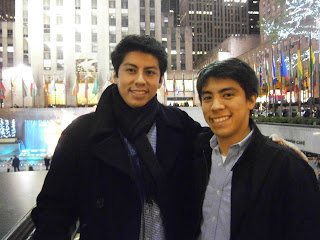Welcome to my blog site はなのせかい! Just to let you know, the title is a reference to name, which means flowers. I spent an awful amount of time thinking of a title for the name of my blog site, and when I finally decided on the one I have now, I discovered that the Japanese in hiragana for flower is はな. Now at first I was really confused because I thought back to our drill class and remembered that nose shared the same spelling. At this point I was really confused and was unsure on whether or not I should change the name of the blog. What I ended up doing was leaving the title in kanji, so I could leave my mind at rest.
Well then, enough blogging about blogs(my roommate started comparing my blog entry to the movie Inception); let me tell you a little bit about myself. I am generally interested in Japanese culture, and it probably has something to do with my older brother making me watch anime every morning before school. I enjoy watching them with subtitles, but if I have to i'll watch them dubbed in English or Spanish. Spanish is actually the first language I learned to speak. My parents are from Mexico and they did a very good job of teaching their children their native tongue, or at least most of their children. My family frequently refers to me as the "gringo" of the house because of my slight American accent when speaking Spanish. Many Americans believe that the word gringo is derogatory, but in Mexico it is occasionally used as a term of endearment. Hopefully, I do not end up with a similar stigma when I leave Japanese 101/102. I'm looking forward to learning Japanese, and eventually (someday in the distant future) travelling to Japan.
ありがとお ございます!
じゃあ、ね。



